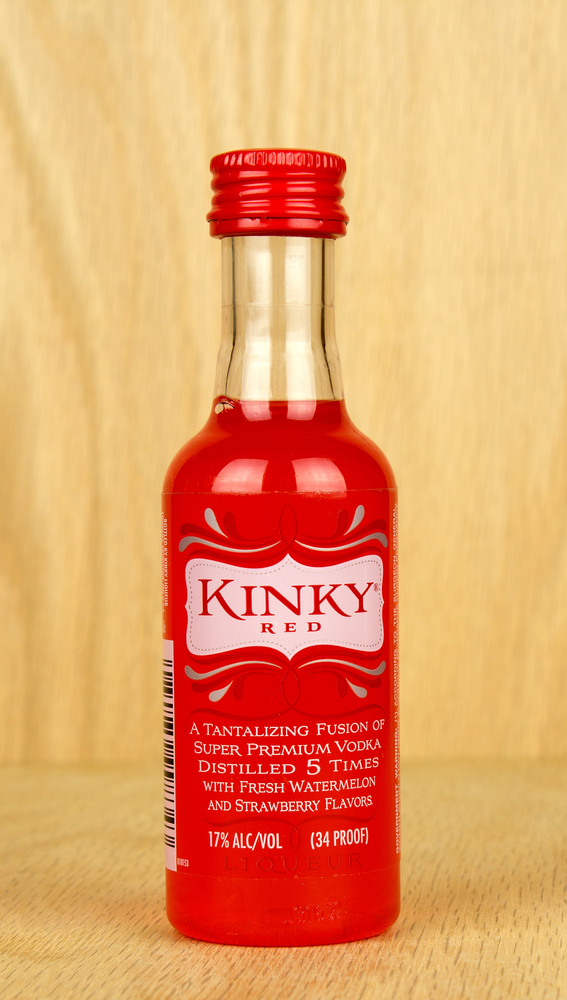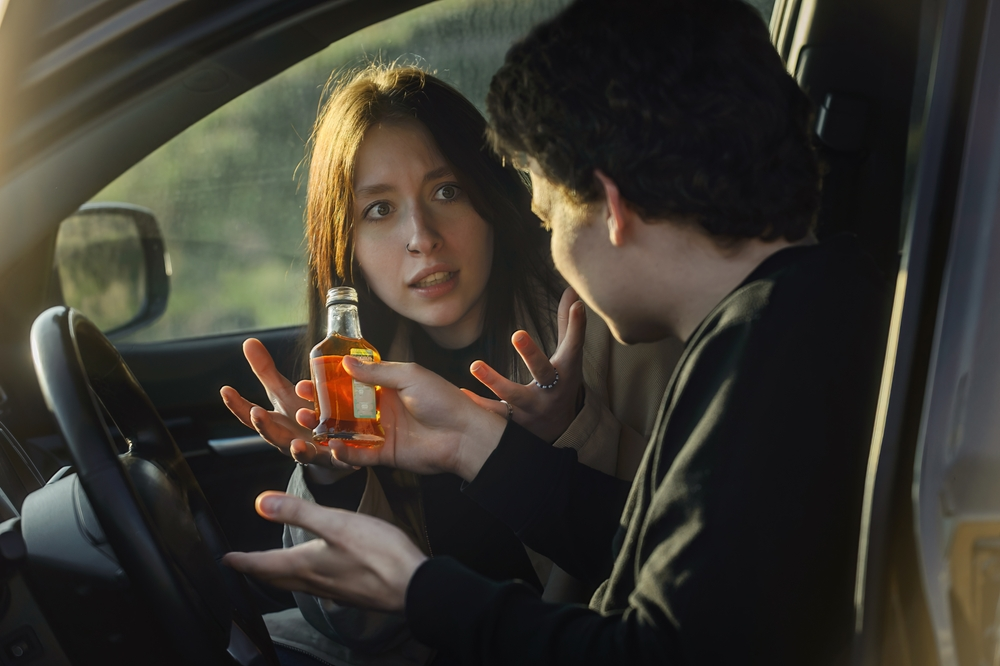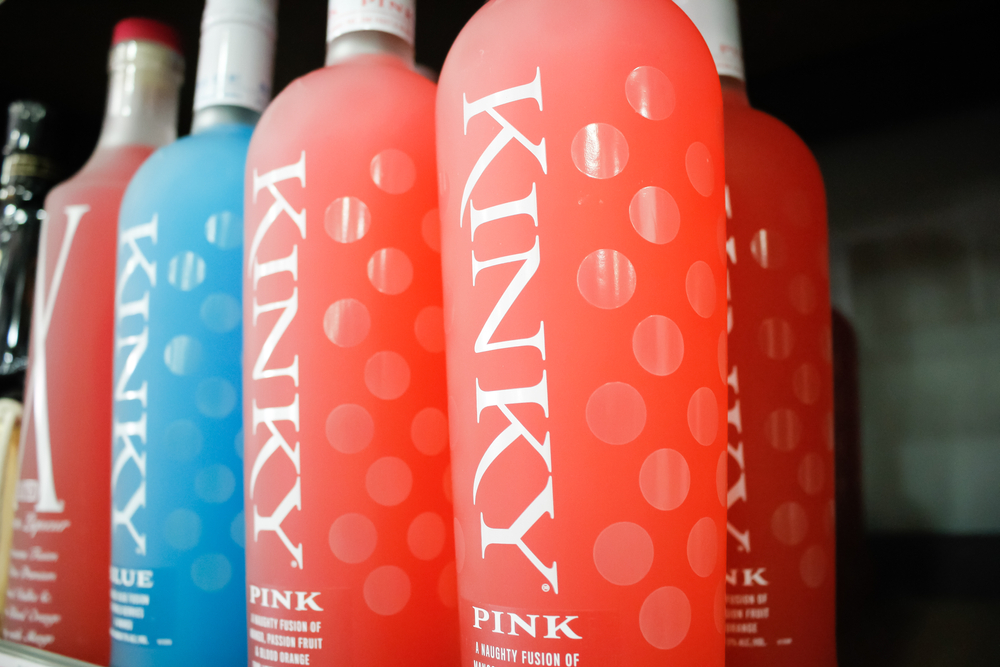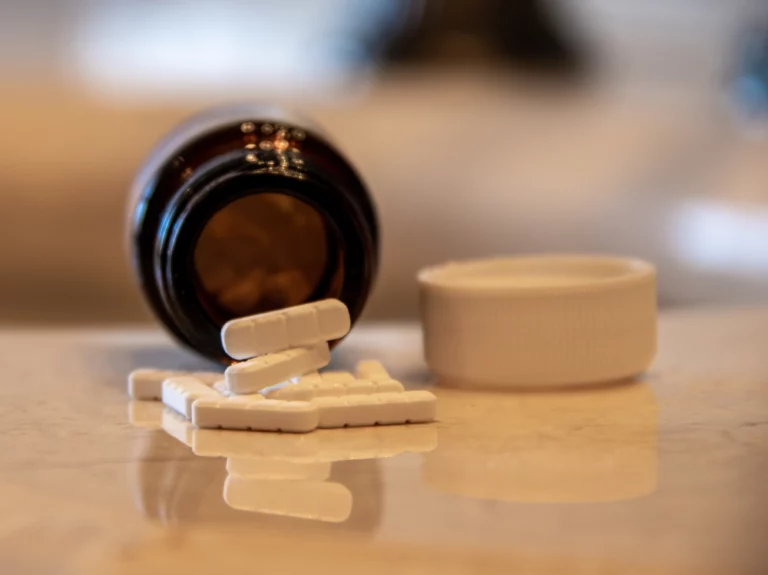Kinky Alcohol: What’s The Buzz About?
Kinky Alcohol is a beverage brand that specializes in fruity-flavored wine coolers, vodkas, and pre-mixed cocktails available for purchase. The bright and fun labeling on the products and the risque brand name are sure to pull in customers, but at what cost? In this article, we will discuss the dangers of wine coolers and “cocktails to go”.
What Exactly Are Wine Coolers?
Wine coolers are mixed alcoholic drinks made from wine and fruit juice, often mixed with a carbonated drink and sugar. Since the 1980s, wine coolers have been bottled and sold commercially in locations where their alcohol content, which is lower than that of wine, is less regulated than table wines. Because fruit and sugar disguise most of the wine’s flavor, wine coolers are usually of the lowest quality available.
When the United States Congress raised wine excise tax from $0.07 to $0.60 per gallon in January 1991, most manufacturers dropped wine from their wine cooler mixtures, substituting it with cheaper malt liquor. However, while they are occasionally called ‘wine coolers,’ these malt-based beverages are actually a different category of beverage—one that can be described as ‘malt beverage,’ ‘malternative,’ or ‘cooler.’

Why Are Drinks Like Kinky Alcohol Dangerous?
While alcohol consumption may not be for everyone, many people still consume it. Sugar-sweetened alcoholic beverages, including wine coolers, make drinking a more palatable experience for those who are new to it. Sweetened alcoholic beverages such as wine coolers are known to be ‘gateways’ to substance abuse, but a new study shows that high-fructose corn syrup makes the taste of alcohol more pleasant, which prompts consumers to drink more alcohol than they otherwise would. Young people are particularly at risk, according to the study.
Early Stage of Alcohol Dependence
Many individuals, particularly college students and young adults, first become acquainted with different kinds of alcohol when they begin consuming it in different forms. During these episodes, students typically drink excessively, often consuming alcohol in large quantities. These individuals are typically not regular drinkers, but they still endanger their health by binge drinking.
The National Institute on Alcohol Abuse and Alcoholism defines binge drinking as consuming a minimum of four or five alcoholic beverages in two hours. A woman must consume four beverages in two hours, while a man must consume five beverages to reach a blood alcohol level of 0.08 percent or higher. Numerous binge drinkers, particularly males, reach higher blood alcohol levels and suffer a host of detrimental physical and mental consequences in addition to the basic four or five-drink limit.
A few binge drinkers or party drinkers will not progress beyond the experimental phase to drink regularly. Those who continue to drink heavily or frequently might do so because they are environmentally or genetically predisposed to do so. For example, children of people with an alcohol use disorder are four times more likely to also suffer from it. In addition, research shows that certain elements of a child’s environment may predispose them to alcohol abuse, including seeing a parent use alcohol or other drugs or witnessing a parent’s depression or family conflict/violence. Furthermore, some people have a mental health disorder and may use social drinking to relieve it.
Despite the fact that environmental and genetic factors play a role in developing an alcohol use disorder, too much alcohol in a short period of time can put someone at risk. Women who consume more than three drinks a day or seven per week are considered to be at risk, whereas men are at risk if they consume more than four drinks a day or 14 drinks per week due to their physiological differences from women.

Problematic Stage of Alcohol Abuse
An individual who has an emotional or psychological attachment to alcohol may be at a higher risk of developing an alcohol use disorder than someone who regularly has a glass of wine with dinner. Moderate consumption of alcohol is associated with both the frequency of consumption and the motivation behind drinking. Generally, problem drinking is associated with having lost control over one’s alcohol consumption or having difficulty with alcohol consumption interfering with one’s daily activities.
An individual who has an alcohol dependency, such as needing it to “have a good time,” might develop harmful drinking habits and ultimately acquire an AUD. Withdrawal symptoms and possibly cravings for alcohol, if present, may make it harder to quit drinking if alcohol dependence sets in.
Signs of Alcohol Addiction
It is vital for people to be aware of the indications of alcohol addiction. Some warning signs of alcoholism are fairly simple to recognize, while others may be more difficult to recognize. Someone’s alcohol addiction severity might be a major contributor to the warning signs they exhibit. For example, people usually consume alcohol in private to hide their alcohol dependency and consequently avoid socializing with other individuals. When this happens, it makes it more difficult for family members and friends to intervene and help their loved ones. If someone has a mild alcohol dependency issue, these signs may be easily overlooked. Indicators that addiction has developed include:
- Depression
- Mood swings
- Anxiety
- Isolation
- Poor hygiene
- Decline in performance at school or work
- Bloodshot eyes
- Legal issues
- Slurred speech
- Aggression
- Trouble in personal relationships
- Engaging in risky behavior
- Flushed skin
- Hiding alcohol from others
- Drinking in secret
Alcohol Addiction in Louisville, Kentucky
The CDC recently released a study showing that Kentucky has the third-highest rate of binge drinking in the United States. Kentuckians consume an average of over 650 drinks per year, according to the study.
According to the National Council on Alcoholism and Drug Dependence, 36% of crimes in Louisville are committed while intoxicated, 15% of robberies, 27% of aggravated assaults, and 37% of sexual assaults are alcohol-related, and 40% of crimes are committed by people with alcohol dependency issues.

Dangers of Alcoholism
Alcohol abuse is a major concern because of the development of negative health conditions and diseases. These conditions and diseases can range in severity, but the following health troubles may result from chronic, heavy alcohol consumption:
Liver Damage
Your liver is responsible for clearing toxins such as alcohol from your body, but consuming excessive amounts all at once may overwhelm it. Drinking excessively may cause liver damage or cirrhosis, which results from the death of liver cells. Alcoholic fatty liver disease may occur as a result of long-term alcohol abuse, which indicates that your liver is functioning less efficiently than it should.
Heart Disease
Blood clots and high levels of fats and cholesterol in the body are well known to be dangerous. Alcohol makes both of these things more likely. Those who consume heavily are also more likely to experience problems pumping blood to their heart, resulting in higher mortality rates from heart disease.
Brain and Nervous System Issues
Alcohol affects the brain’s communication pathways, making it harder for you to think and speak clearly, remember things, make decisions, and move your body. In addition to mental health issues such as depression and dementia, drinking heavily can also cause mental health issues such as depression and dementia. After you sober up, you may suffer serious nerve damage that lasts a long time.
Anemia
An iron deficiency may cause a range of problems including ulcers, inflammation, and other issues when your body fails to produce enough healthy red blood cells to transport oxygen. In addition to increasing your likelihood of skipping meals, too much alcohol may also impair your body’s ability to iron.
Cancer
A connection between heavy alcohol consumption and a variety of cancers is well established. Alcohol damages the cells in your mouth, throat, voicebox, and esophagus. Liver, breast, and colon cancers are among the cancers that may result from alcohol use. Because of its enhancement of cancer-causing chemicals in tobacco and other sources, alcohol may allow these chemicals to penetrate your cells more easily.
Treatment for an Alcohol Use Disorder
Choosing to seek treatment for alcoholism is one of the greatest decisions a person will ever make. Before beginning therapy, you should be familiar with the various services provided by each program. For example, a comprehensive program focuses on the person as a whole rather than just his or her alcohol consumption.
Detox
The first stage of treating alcoholism is often the toughest. It’s essential to remember that you will suffer serious withdrawal symptoms in the first few days after you stop drinking. Because of this, detoxification should only be done under medical supervision. Medical professionals will also be able to provide you with pain medication to ease your discomfort. You’ll be able to focus on healing once you’ve completed detox. Once you’ve detoxed, you’ll be able to move forward with other forms of therapy and treatment.
Rehabilitation
Rehabilitation, which begins after detoxification, comprises a variety of therapies and treatments that help you overcome cravings and triggers to drink. During this stage, you’ll learn coping skills that you can utilize post-rehabilitation to deal with everyday problems. Your condition will either be treated in an inpatient or outpatient setting, depending on the severity of your alcoholism and your treatment specialist’s recommendation.

Aftercare
Once you complete the rehabilitation stage, you will begin to slowly adjust to daily life again. It is critical to take it slow as you return to normal activities. Joining an aftercare program or support group such as Alcoholics Anonymous or Al-Anon, which offer assistance and connection with those in recovery, group leaders and sponsors, can be an effective method to make lifestyle changes and maintain sobriety.
Louisville Recovery Center is Here for You
Anyone can be affected by alcohol addiction in Louisville. If you or a loved one is currently struggling with addiction, Louisville Recovery Center can provide help. We believe anyone can recover from addiction. Our experts will help you develop an addiction treatment program that meets your needs. Our customized services and programs can assist you in overcoming addiction.
We can assist you in conquering addiction by giving you knowledge about our programs and services. Please get in touch with us for more information. You are no longer alone in your struggle with alcohol.







